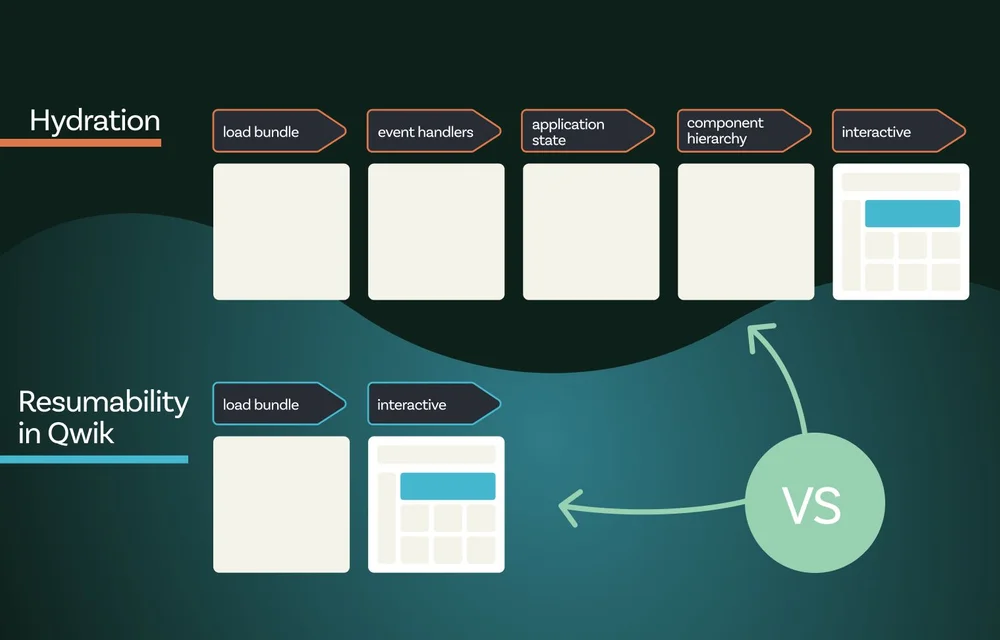Overview
Qwik is a new kind of web framework that can deliver instantly load web applications at any size or complexity. Your sites and apps can boot with about 1kb of JS (regardless of application complexity), and achieve consistent performance at scale.
Qwik is:
- General-purpose: Qwik is familiar for React developers and can be used to build any type of web site or application.
- Resumable: Qwik is resumable which means Qwik applications require no hydration. This allows Qwik apps to have instant-on interactivity.
- Progressive: Qwik takes full responsibility of how to load and download JS. No more manual code splitting.
- Reactive: Qwik semantics allow for fully reactive and efficient rendering.
- Fast: Qwik has consistantly fast performance no matter the application complexity, offering sub-second full page loads even on mobile devices. Qwik achieves this by delivering pure HTML, and incrementally loading JS only as-needed.
- Scalable: Qwik application have O(1) constant scalability. It does not matter the size of your application, boot time is constantly fast.

Does page speed really matter?
Put simply: slow sites deter visitors, costing businesses millions. Fast sites have better SEO, better UX, and are more profitable.
Some examples from web.dev:
| Every 100ms faster → 1% more conversions For Mobify, every 100ms decrease in homepage load speed worked out to a 1.11% increase in session-based conversion, yielding an average annual revenue increase of nearly $380,000. | 50% faster → 12% more sales When AutoAnything reduced page load time by half, they saw a boost of 12% to 13% in sales. |
| 20% faster → 10% more conversions Retailer Furniture Village audited their site speed and developed a plan to address the problems they found, leading to a 20% reduction in page load time and a 10% increase in conversion rate. | 40% faster → 15% more sign-ups Pinterest reduced perceived wait times by 40% and this increased search engine traffic and sign-ups by 15%. |
| 850ms faster → 7% more conversions COOK reduced average page load time by 850 milliseconds which increased conversions by 7%, decreased bounce rates by 7%, and increased pages per session by 10%. | 1 seconds slowness → 10% less users The BBC found they lost an additional 10% of users for every additional second their site took to load. |